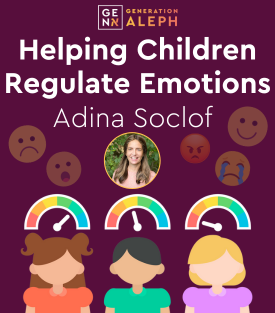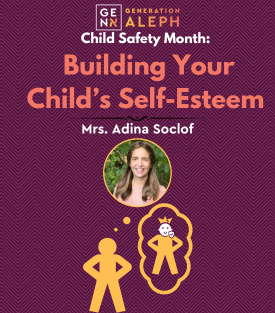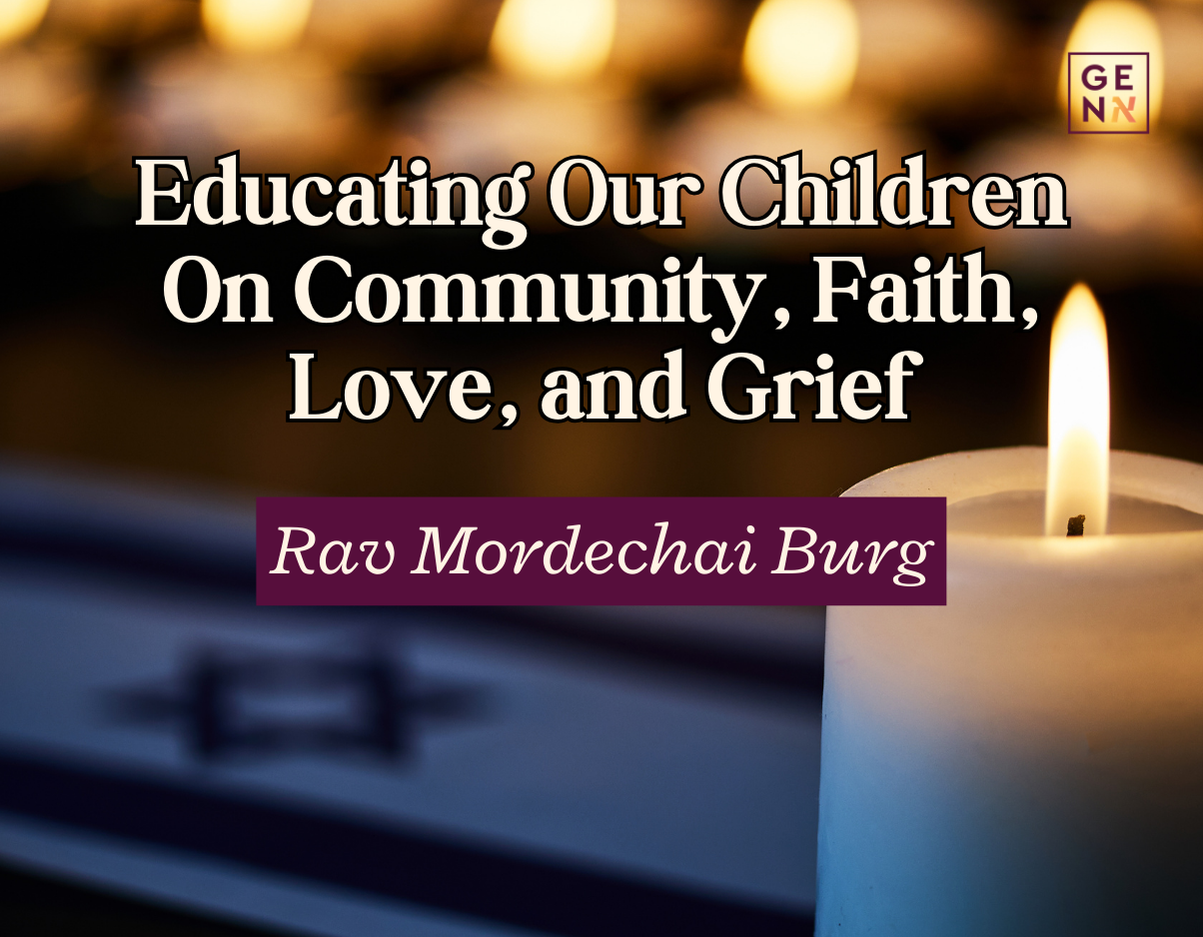וַיִּשְׁמַ֞ע יִתְר֨וֹ כֹהֵ֤ן מִדְיָן֙ חֹתֵ֣ן משֶׁ֔ה אֵת֩ כָּל־אֲשֶׁ֨ר עָשָׂ֤ה אֱלֹהִים֙ לְמשֶׁ֔ה וּלְיִשְׂרָאֵ֖ל עַמּ֑וֹ כִּֽי־הוֹצִ֧יא יְהוָֹ֛ה אֶת־יִשְׂרָאֵ֖ל מִמִּצְרָֽיִם:
Now Moses’ father in law, Jethro, the chieftain of Midian, heard all that God had done for Moses and for Israel, His people that the Lord had taken Israel out of Egypt. (Shemos 18:1)
What did Yisro hear that inspired him to join Klal Yisrael? Rashi explains:
וַיִּשְׁמַע יִתְרוֹ: מַה שְּׁמוּעָה שָׁמַע וּבָא? קְרִיעַת יַם סוּף וּמִלְחֶמֶת עֲמָלֵק:
Now Yisro heard: What news did he hear that [made such an impression that] he came? The splitting of the Red Sea and the war with Amalek. — [from Zev. 116a, and Mechilta, combining the views of Rabbi Joshua and Rabbi Eliezer]
Rashi offers two explanations as to what Yisro heard; the miracle of the splitting of the sea and the war with Amalek. Many of the Baalei Mussar have suggested that these are not in fact two disparate answers. Yisro was shocked that Amalek could hear the miracles that occurred to Klal Yisrael and rather than be inspired by these Nissim, they attacked Klal Yisrael. Put differently, there is a clear juxtaposition between the listening of Amalek and the listening of Yisro. Amalek heard about the miracles that occurred to Klal Yisrael through the prism of their own hatred and saw Klal Yisrael as a threat that needed to be wiped out. Yisro set aside any of his own biases and truly listened to what happened to Klal Yisrael. Not only was he inspired by the miracles at the Yam Suf, he saw clearly what happens when Amalek listened in a perverse fashion and it inspired him to leave Amalek and join Klal Yisrael (see Kli Yakar who suggests that Yisro lived with the Amalekites).
Listening is an art form. It requires a complete emptying of the mind and being authentically present when someone is talking to us. I recently had the opportunity to meet Rav Daniel Kalish, the Menahel of Waterbury. As we sat together, I had the strong feeling that I was speaking with someone who had nowhere else to be (despite the fact that he was about to address 400 plus people) and that he was not thinking about anything else other than what I was saying. For most of us listening is something that we do until we can grab the opportunity to talk again. To authentically listen means to hear every word the other person says and then to formulate your response. It means checking your biases to ensure that you heard what they actually said and not what went through the vortex of our own triggers. How many times do people argue about what precisely was said, each sure that they know the words that were spoken and the intent behind them. Truly listening to another person is difficult to say the least. It is hard to create real space for another and holding our ego in check while they speak.
Active listening may be difficult but it is really important. Especially when we are listening to our children. When we truly listen to our children we:
- Communicate to them that they are worthy of our attention
- Teach them that their worldview has merit
- Let them know that we are a strong support system for them
If we listen to our children as Amalek listens (ie. through the lens of our own bias) we accomplish none of these goals. Imagine the following scenario:
Dad: Shimon, how was your day?
Shimon: Terrible. None of the boys want to be my friend. No one wants to play with me during recess.
Dad: I am sure there are some boys who would want to be your friend. Just go start playing in the games and you will see that the boys will play with you.
Shimon: OK
Dad’s advice at first blush appears to be sound. A child who plays in the game is simply more likely to be included in the future. But, Dad diagnosed and solved a problem that may not actually be the problem. Maybe the problem is that Shimon is being excluded from the group by a particular friend. Maybe because of that friend he does not feel comfortable to play with the others during recess. While Dad was well intentioned, in addition to the poor advice he inadvertently communicated to his son:
- He is unworthy of his father’s attention – otherwise Dad would have spent more time listening and probing to discover the actual problem.
- His worldview does not have merit – if his worldview had merit Dad would have actually listened more carefully rather than rushing to assumptions
- His father is not a support system for him.
To listen as Yisro does means to listen without judgment, bias or evaluation. In other words, Yisro completely suspended his own ego. Though Yisro was surrounded by Amalekites, he actually made space to hear about the events that took place as Klal Yisrael was leaving Mitzrayim. He paid attention to the response of Amalek. Only after truly listening did he make his decision to join Klal Yisrael. Let us once again imagine the scenario above.
Dad: Shimon, how was your day?
Shimon: Terrible. None of the boys want to be my friend. No one wants to play with me during recess.
Dad: That sounds really hard. I am so sorry to hear that.
Shimon: (fighting back tears) Yes it really is.
Dad: Did something change that the boys don’t want to be your friend or play with you?
Shimon: Reuven has been really mean to me lately and he is telling the boys not to include me in the game. I didn’t want to tell you because I don’t want you to call the school or Reuven’s father. That will only make things worse. He will call me a snitch.
Dad: I can definitely understand not wanting to tell me. It sounds like you are concerned that getting me involved will only increase the problem. I totally hear feeling that way. It can be really painful to be excluded. How do you think you would want to handle this?
Notice how Dad validated Shimon’s experience and asked curious questions. No doubt that Dad was triggered as Shimon was telling his story (I know I would be). It can be deeply unsettling to see our children in pain, especially when they are being bullied by another. It can be very difficult to separate our feelings from our children’s feelings especially when they are going through things that we went through as a child and we are very triggered. In cases like these, as parents we may have our own agendas and methods for solving problems like these. In this case, Dad was an authentic active listener, completely present as his child spoke. Children who are parented like this:
- Feel a strong sense of love as he is worthy of his father’s attention.
- Develop real confidence as they see that their worldview is valued.
- Have a deep sense of belonging knowing that they have a strong familial support system behind them
Ultimately, if we actively listen to our children we deepen our relationship with them. And the more we do this with our children when they are younger the more likely they are to turn to us for support and guidance as they are teenagers and face more complex and difficult choices.
It is not accidental that the Parsha that deals with the giving of the Torah at Har Sinai begins with Yisro’s listening. Listening to the Torah without bias or ego is a fundamental part of receiving the Torah. Can we really say we are learning Hashem’s will and wisdom for this world if we are twisting the words of the Torah to fit our own agenda? Each one of our children is a Torah unto themselves. A sugya that is meant to be learned with great diligence. Can we really say we are parenting our children if we haven’t truly listened to their experience? If we do not really know how they see the world? In order to parent our children we are called upon to listen as Yisro did and then make the authentic and difficult choice as to how we should proceed. It is not an easy to task but it is how we love our children into being.
_________________
Rav Mordechai Burg is the Menahel of Mevaseret, Mashpia of NCSY Summer, Mashpia of Nitzotzos, author of Nitzotzos on Chumash and a senior Rebbe at Tomer Devorah and Bnot Torah Institute. His shiurim can be found on Nitzotzos.com.
Submit your questions
"*" indicates required fields











